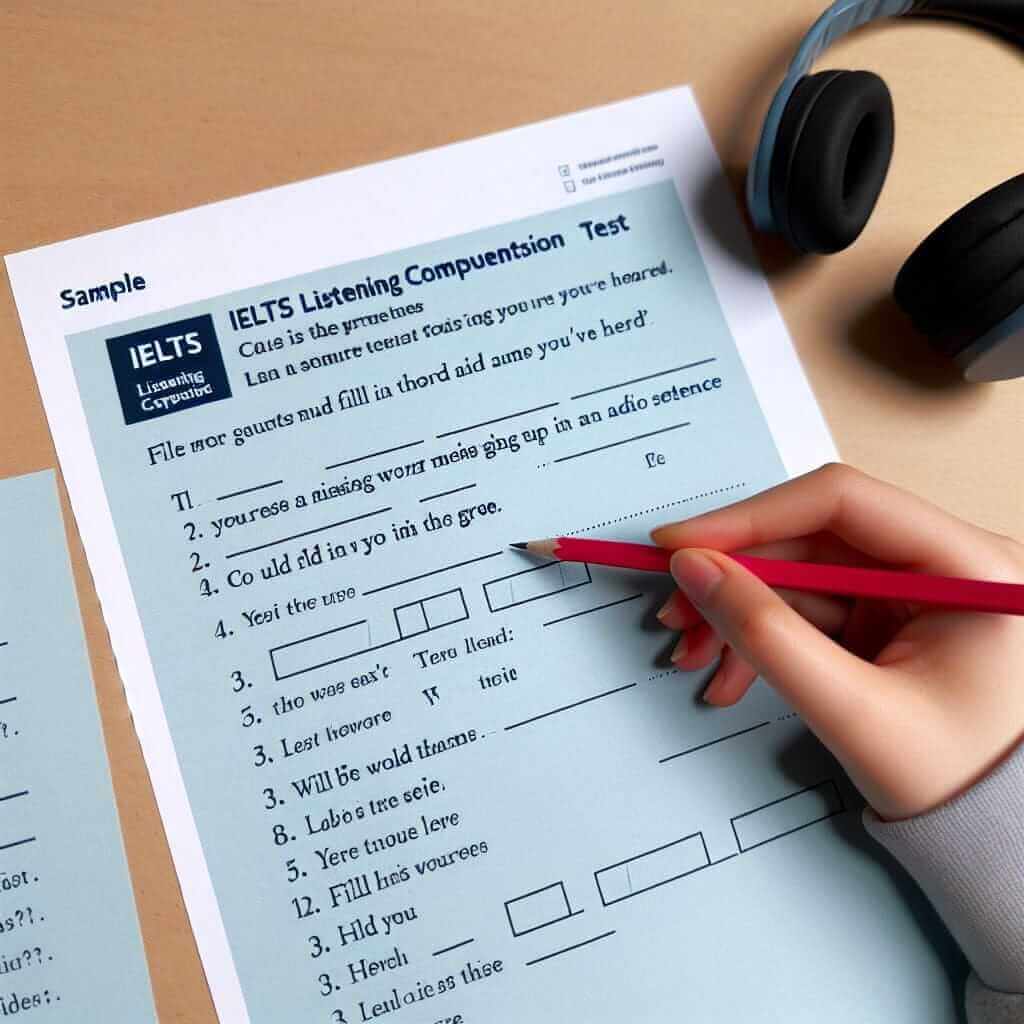As an IELTS instructor with over 20 years of experience, I understand the challenges students face with the Listening test. It’s not just about understanding English; it’s about deciphering accents, focusing under pressure, and applying strategic listening skills. This comprehensive guide will equip you with the knowledge and strategies needed to conquer the IELTS Listening test.
Understanding the IELTS Listening Test Format
Familiarity breeds confidence. Before diving into strategies, let’s break down the IELTS Listening test format:
- Duration: 40 minutes (30 minutes for listening and 10 minutes to transfer answers)
- Sections: 4 sections, each with 10 questions
- Audio Types: A range of accents and scenarios, including everyday conversations, academic lectures, and monologues.
- Question Types: Multiple choice, sentence completion, note-taking, diagram labeling, matching, short-answer questions.
Effective Strategies to Deal with IELTS Listening
1. Improve Your Active Listening Skills
- Focus on Keywords: Train your ears to pick out essential information. Identify keywords in the questions and listen attentively for them in the audio.
- Predict Content: Before each section, use the given time to read the questions and anticipate the topic and potential vocabulary.
- Pay Attention to Signposting Language: Speakers often use phrases like “moving on to…” or “in contrast to…” These phrases signal a shift in topic or perspective.
- Don’t Dwell on Missed Answers: If you miss an answer, don’t panic! Move on to the next question. You’ll have time to review and make educated guesses at the end.
2. Expand Your Vocabulary and Grammar
- Listen to a Variety of English Accents: Familiarize yourself with different accents like British, American, Australian, and Canadian. You can find podcasts, news channels, and even movies to immerse yourself.
- Note Down Unfamiliar Words: Keep a vocabulary journal and jot down any unfamiliar words you encounter during practice. Look them up and practice using them in sentences.
- Focus on Grammar for Specific Question Types: For instance, sentence completion questions require a good understanding of grammar rules for accurate answers.
3. Develop Effective Note-Taking Techniques
- Use Abbreviations and Symbols: Develop your system of shorthand to quickly jot down key information while listening.
- Focus on Key Information: Don’t try to write down everything you hear. Focus on essential details like names, dates, and keywords.
- Organize Your Notes: Use clear headings and bullet points to make your notes easy to scan and understand when transferring your answers.
4. Practice Regularly with Past Papers
- Simulate Test Conditions: Create a quiet environment, use a timer, and practice with the official IELTS answer sheet.
- Analyze Your Mistakes: Don’t just focus on your score. Analyze your mistakes to identify areas for improvement, whether it’s vocabulary, a specific question type, or concentration lapses.
- Track Your Progress: As you practice, keep track of your scores and note any improvements. This will boost your confidence and help you stay motivated.
Example from an IELTS Listening Test
Question Type: Sentence Completion
Audio Script:
“The museum will be closed for renovations from the 15th of July until the end of August. We apologize for any inconvenience this may cause.”
Question:
The museum will be closed from the 15th of July until the __ of August.
Answer:
end

Top Tips for IELTS Listening Success
- Develop a Routine: Consistent practice is key. Dedicate a specific time each day to practice your listening skills.
- Stay Calm and Focused: Nervousness can hinder your performance. Practice relaxation techniques and maintain focus throughout the test.
- Use the Transfer Time Wisely: Don’t waste the 10 minutes provided to transfer your answers. Double-check your spelling and grammar and make any necessary changes.
Conclusion
Mastering the IELTS Listening test requires a combination of focused practice, effective strategies, and a calm mindset. By implementing the tips and techniques outlined in this guide, you’ll be well on your way to achieving your desired score. Remember, consistent effort and a positive attitude are key ingredients for success. Good luck!